Normal Good Citizenship Worksheets for Ages 4-8
6 filtered results
-
From - To
Explore our engaging "Normal Good Citizenship Worksheets for Ages 4-8" designed to introduce young learners to the fundamentals of citizenship. These printable worksheets encourage children to understand the importance of kindness, respect, and community involvement. Through fun activities such as coloring pages, matching games, and simple discussions, kids will learn how to be responsible citizens. Each worksheet promotes critical thinking about how their actions impact others and highlights the value of helping and sharing in their communities. Perfect for both classroom and at-home learning, these resources make understanding good citizenship exciting and accessible for young minds!
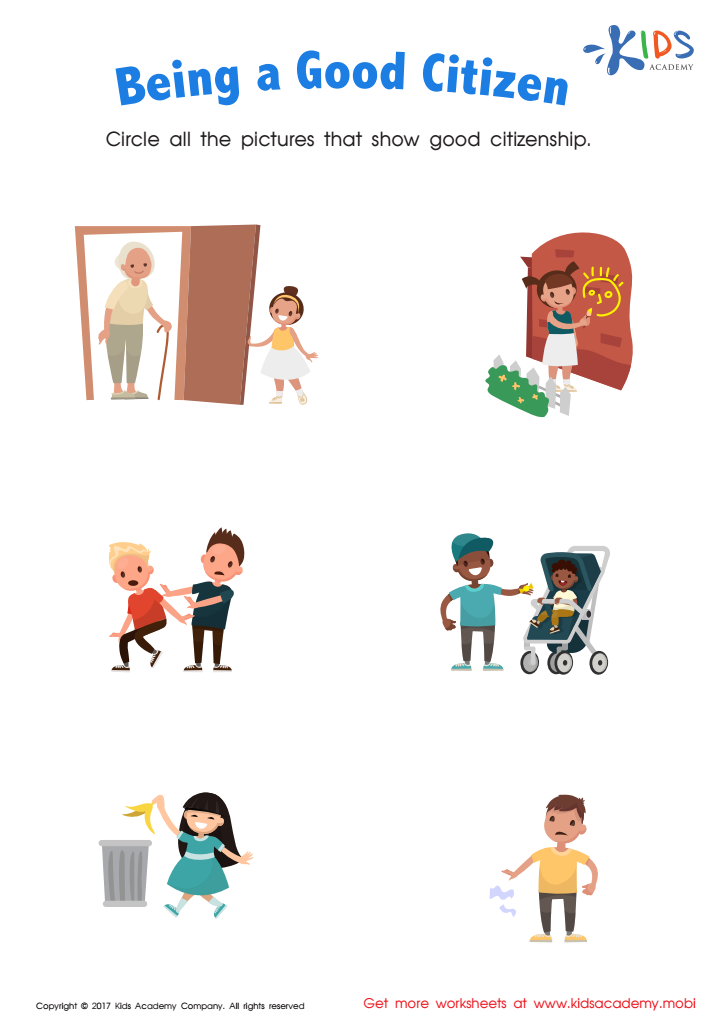

Being a Good Citizen Printable
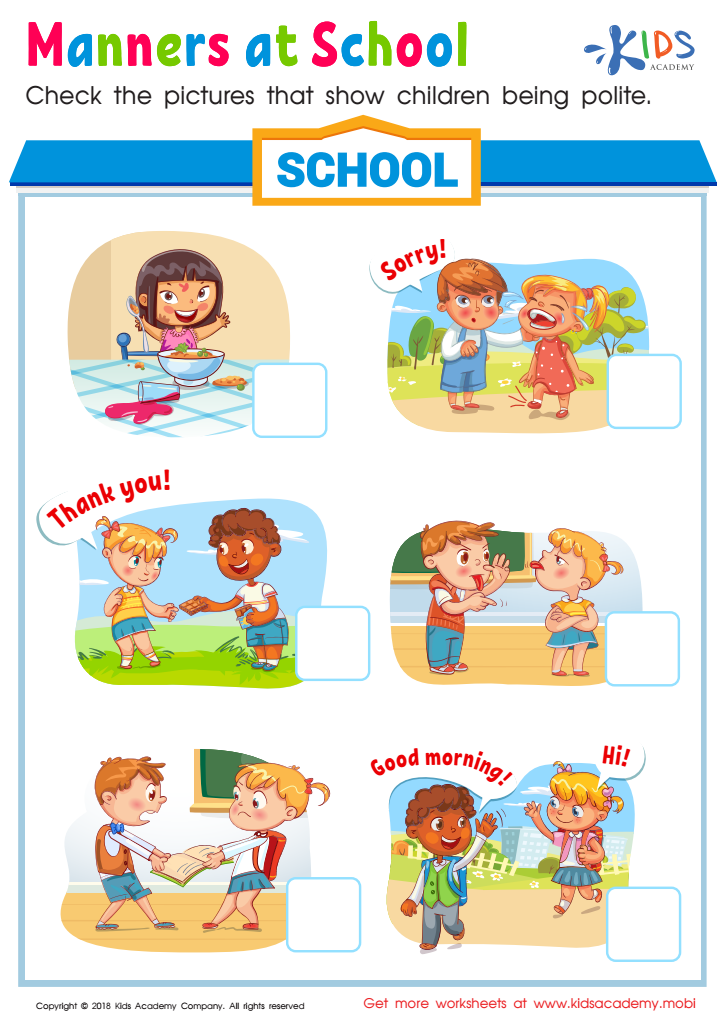

Manners at School Worksheet
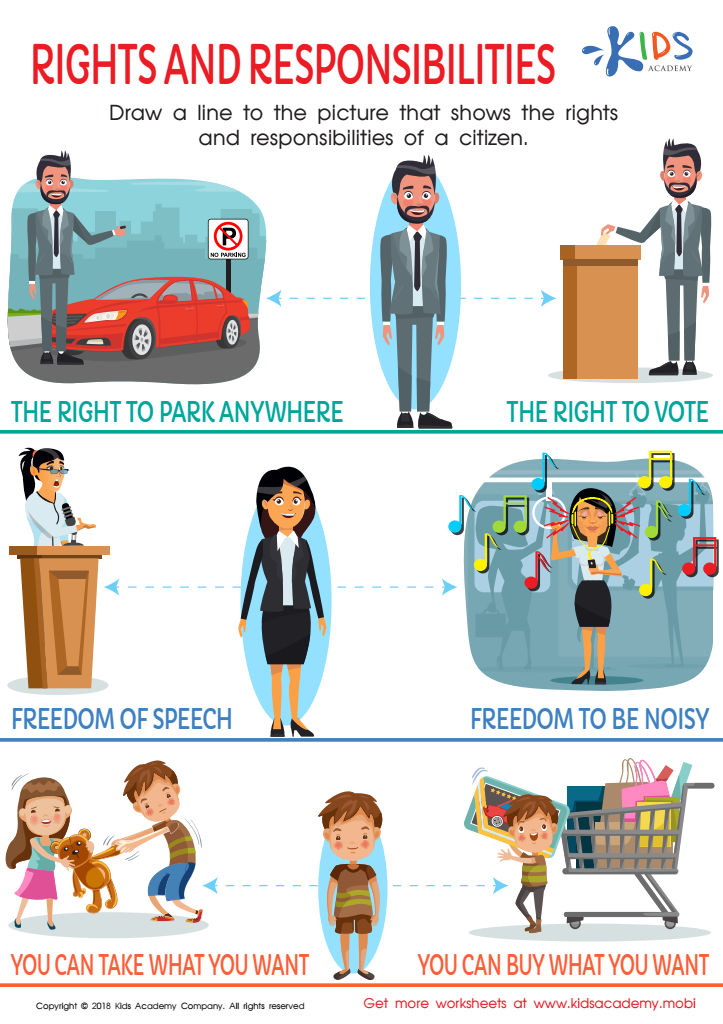

Rights and Responsibilities Worksheet
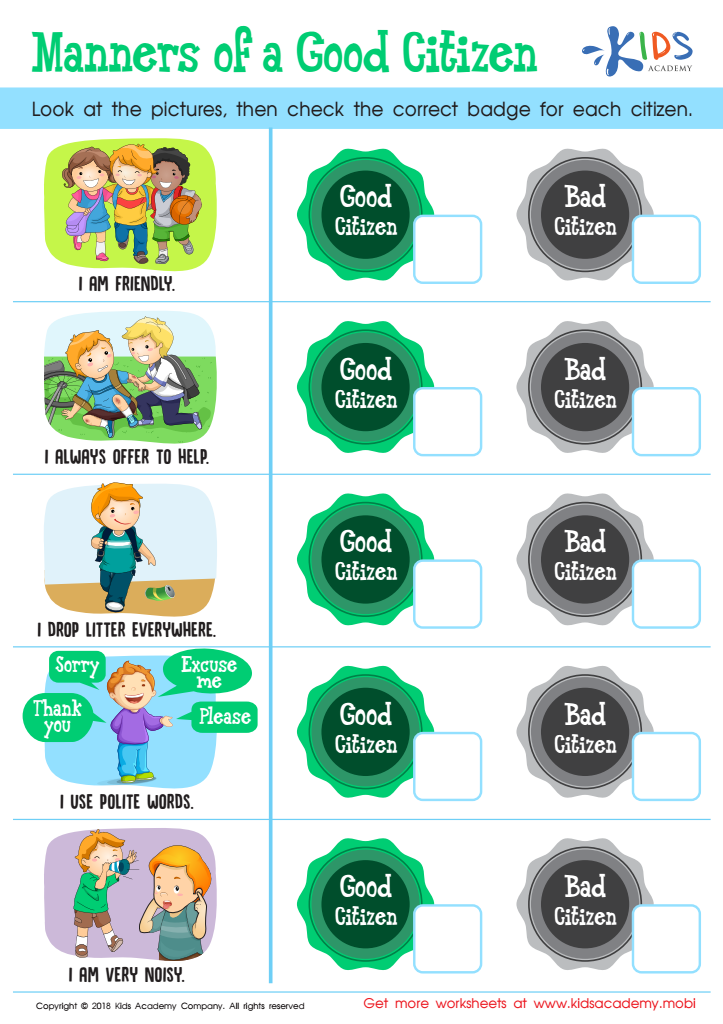

Manners of a Good Citizen Worksheet
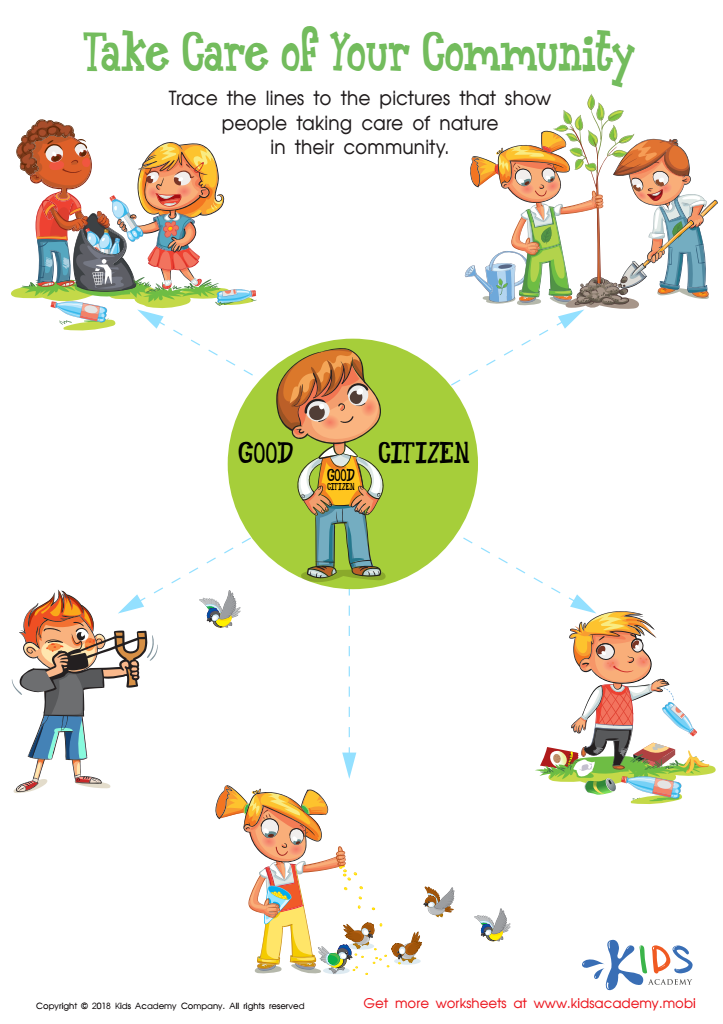

Take Care of your Community Worksheet
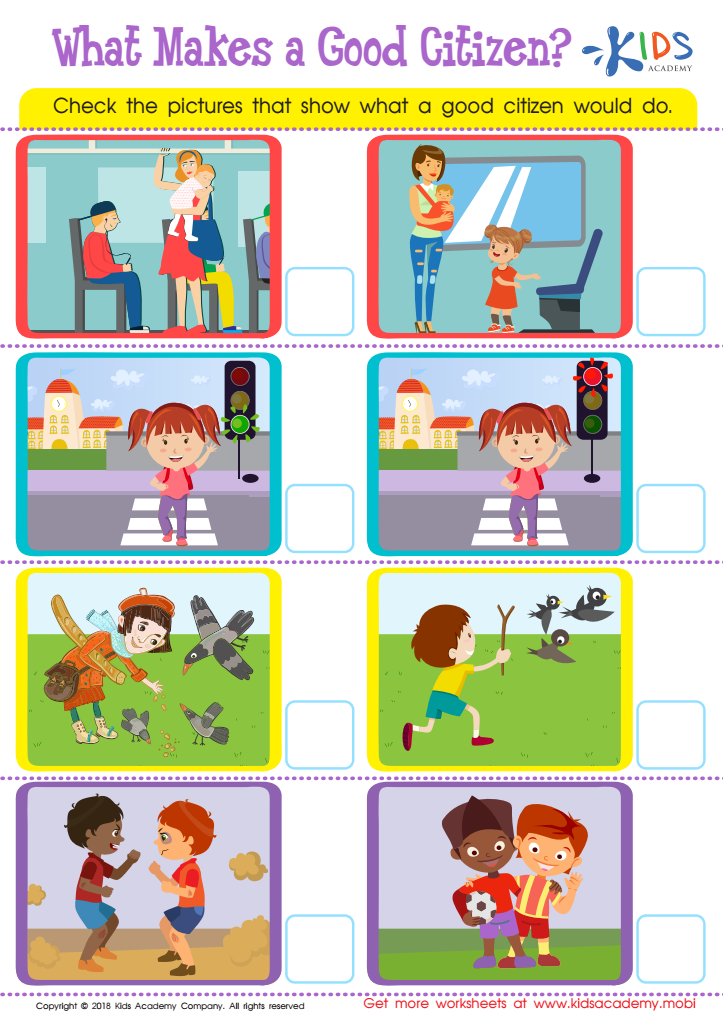

What Makes a Good Citizen? Worksheet
Normal Good Citizenship is crucial for children aged 4-8 because it lays the foundation for their future social behavior and community involvement. At this age, children are highly impressionable, learning values such as sharing, empathy, and respect for others. Teaching good citizenship helps them understand their roles as responsible members of families and communities, fostering a sense of belonging and responsibility.
Parents and teachers can nurture these essential skills through everyday activities. Simple tasks, like taking turns, expressing gratitude, and helping peers, promote cooperation and support a positive classroom and home environment. Such practices encourage children to recognize the importance of collaboration and community service, setting the stage for lifelong civic responsibility.
Moreover, good citizenship equips children with the tools they need to make positive decisions, stand up for themselves and others, and appreciate diversity. By fostering understanding and inclusivity at a young age, we prepare them to navigate challenges respectfully in the future. In essence, instilling the principles of Normal Good Citizenship in young children not only shapes their character but also nurtures future generations of engaged, caring, and informed citizens, ultimately benefiting society as a whole.
 Assign to My Students
Assign to My Students
















